(Dobbs) Hard Facts And Hard Conclusions About The War In Gaza
The cost to both sides has been unimaginable. A way out is equally unimaginable.
Life is not a fairytale. Sometimes the story doesn’t have a happy ending. The question right now in the war between Israel and Hamas is, which unhappy ending is it going to be?
Some of the possibilities:
1. Israeli Prime Minister Netanyahu and Hamas— whoever actually speaks for Hamas— strike a deal for a ceasefire. It includes freedom for some if not all of the hostages. But by the time any deal is struck, some if not all of them are dead. Credible evidence suggests that six hostages were shot in the head shortly before the Israeli military broke into a tunnel under Gaza to free them on Saturday.
Then Hamas announced that if Israel tries to rescue any more of them, they “will be returned to their families in shrouds.” Since the hostages are Hamas’s only bargaining chips, this might sound unlikely but as Hamas has shown, its strategies can be self-destructive.
Every sign from Netanyahu’s government suggests that the deaths of additional hostages would lead to an even fiercer offensive against Palestinians in the Gaza Strip. Tens of thousands of innocent Palestinians already are dead, and hundreds of thousands are homeless and hungry and sick. If Israel redoubles its operations, those numbers will go up. And that will multiply the number of Palestinians who dedicate their lives to attacking the Jewish state. And with violence already exploding in the long restive West Bank, that will prolong the state of war for another generation or more. And that will postpone the possibility even longer, however slim it already seems today, of a two-state solution.
2. The last chance for a ceasefire falls through. One of Hamas’s demands is that Israel withdraw its forces from every inch of Gaza, including the Philadelphi Corridor, the eight-and-a-half mile border between Gaza and Egypt. But Netanyahu says his troops won’t budge, because this is where Hamas has used tunnels that begin on the Egyptian side to sneak in everything from weapons for its fighters to steel and concrete for its underground shelters. He declared, “This is the oxygen of Hamas.”
What’s more, the dispute over this short but contentious border puts the sometimes shaky but never breached peace pact between Israel and Egypt, known as the Camp David Accords, in jeopardy. It became the foundation for Israel’s treaties with other former enemies, and for 45 years has helped keep the peace in the Middle East. An Egyptian withdrawal might open the door for other Arabs to sever the ties in which they already have invested so much, which could threaten whatever chance there was for stability in the region.
An Egyptian disengagement is not just theoretical. Although Egypt fears the spread of Hamas’s influence into its own sovereign territory and wants no part of a bigger Palestinian diaspora in Egypt, it says a permanent Israeli presence in neighboring Gaza is in violation of the treaty that both nations have long respected. The Egyptian government’s chief spokesman said early in the war, “It must be strictly emphasized that any Israeli move in this direction will lead to a serious threat to Egyptian-Israeli relations.”
3. The war continues with no end in sight. More Palestinian citizens die. More Israeli soldiers die. More hostages, those who are even still alive, die. And, Hamas goes underground in a different way and sets plans in motion for another wholesale slaughter in Israel. Meanwhile, Iran and its axis of evil, including Hezbollah to Israel’s north, continue to keep the whole of the Middle East on edge.
Two Middle East experts wrote an analysis a few days ago in Foreign Affairs, projecting the future if no ceasefire deal is reached. “Netanyahu’s pursuit of ‘total victory’,” they predicted, “would mean continuing the war in Gaza at the price of neglecting adversaries on other fronts that now pose a greater threat to Israel than Hamas does. Continuation of the current operations in Gaza will not lead to the destruction of Hamas but will drag Israel into a prolonged and costly anti-guerrilla war and simultaneous escalation in other arenas. Hostages will continue to die in Hamas tunnels; Israel’s economy will continue to deteriorate; its status in the world will continue falling to new lows.”
We want to think everything is possible, which could mean that despite the obstacles, a ceasefire is reached. But “everything possible” means everything bad as well as everything good. And according to some, a ceasefire at this point might be a bad thing. That’s why even two respected national commentators, both of them with long records speaking out in support of Israel, came down on different sides of the question in columns published side-by-side yesterday in The New York Times.
Bret Stephens argued for Israel to remain single-mindedly intent on staying the course until its goals are met. A few excerpts:
• On Israel’s need to control the border between Gaza and Egypt: “Hamas was able to initiate and fight this war only because of a secure line of logistical supply under its border with Egypt.”
• On forsaking its goals in the war out of sympathy for the hostages who might still be rescued: “Sympathy cannot be a replacement for judgment… There must be a limit to what any society can afford to pay.”
• On Israel agreeing to a compromise before those goals are met: “Wars will be worse, and come more often, to those who fail to win them.”
Tom Friedman said yes to pulling away from the Philadelphi Corridor, yes to a ceasefire. Excerpts from his arguments:
• On the elusive goal of total victory: “The Israeli military has been occupying the West Bank for 57 years and, as the daily clashes demonstrate, has not achieved ‘total victory’ over Hamas militants there.”
• On Netanyahu’s insistence on a permanent presence along the Philadelphi Corridor: “The Israeli military did not think (it) important enough to even occupy for the first seven months of the war.”
• On sealing the Egyptian-Gaza border : “Israeli generals have consistently told Netanyahu there are many alternative effective means for controlling the corridor now and that supporting Israeli troops marooned out there would be difficult and dangerous. And they could retake it any time they need.”
We can get lost in the details at risk of overlooking the bigger picture. On October 7th, Hamas attacked Israel. It raped and maimed citizens in their homes, it killed at least 1,200 people, it kidnapped hundreds more. On October 27th, Israel invaded Gaza, determined to emancipate the hostages and destroy Hamas, but with both goals unmet, it hasn’t stopped.
The cost to both sides has been unimaginable. And although there still might be a possibility for a ceasefire and eventually an end to the bloodshed, it seems, at least today, that between bitterness and stubbornness and trauma on both sides, a way out of this intractable impasse is equally unimaginable.
A happy ending— a ceasefire, let alone a long-term truce, let alone security for both sides— still seems out of sight.
Over more than five decades Greg Dobbs has been a correspondent for two television networks including ABC News, a political columnist for The Denver Post and syndicated columnist for Scripps newspapers, a moderator on Rocky Mountain PBS, and author of two books, including one about the life of a foreign correspondent called “Life in the Wrong Lane.” He also co-authored a book about the seminal year for baby boomers, called “1969: Are You Still Listening?” He has covered presidencies, politics, and the U.S. space program at home, and wars, natural disasters, and other crises around the globe, from Afghanistan to South Africa, from Iran to Egypt, from the Soviet Union to Saudi Arabia, from Nicaragua to Namibia, from Vietnam to Venezuela, from Libya to Liberia, from Panama to Poland. Dobbs has won three Emmys, the Distinguished Service Award from the Society of Professional Journalists, and as a 38-year resident of Colorado, a place in the Denver Press Club Hall of Fame.


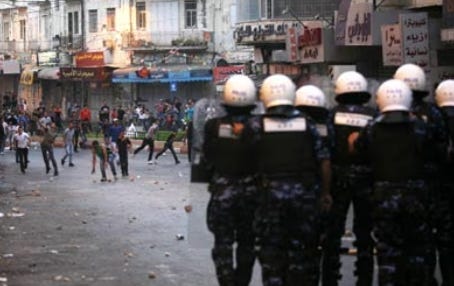
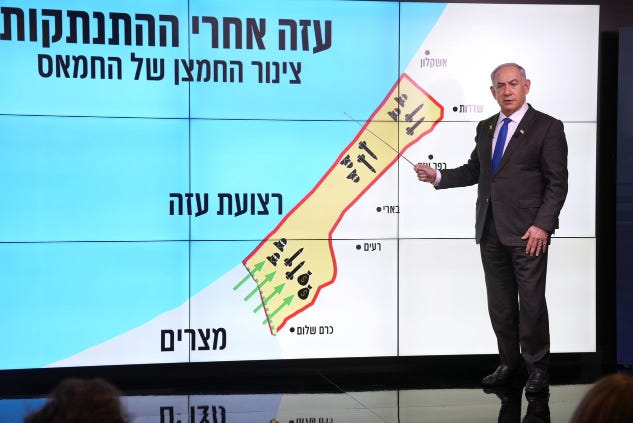
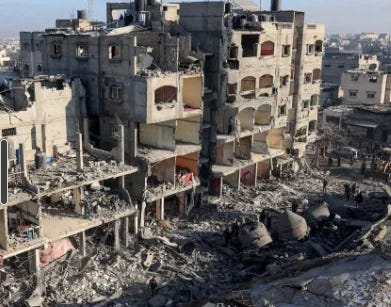
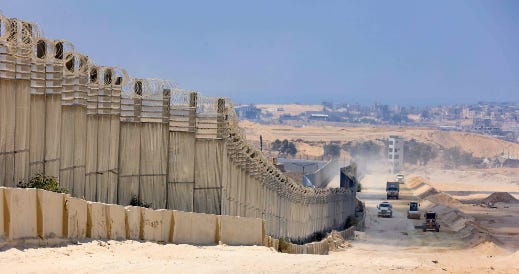
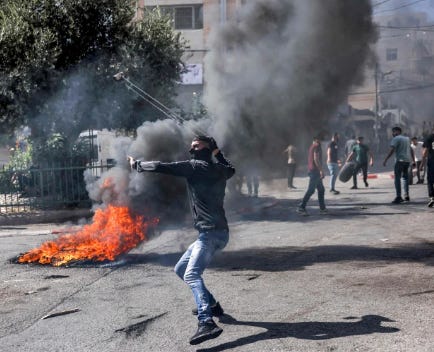
Until the United States and the west confront Iran there will be no peace in the Middle East. And if Iran does acquire nuclear weapons there will be no peace in the world. Appeasing Iran, lifting or not enforcing sanctions has provided Iran with billions of dollars it did not spend on its people, but rather on arming and supporting Hamas, Hezbollah, and the Houthis. And now it supports Russia.
I have read in a few credible sources that IDF leadership have argued against a permanent presence in the PhilDelphi corridor— that if warranted they could take that stretch quickly— on the other hand Egypt will do nothing to stop Hamas smuggling… that’s what Bibi’s government wants to forestall as well as putting a bullet in Sinawar’s forehead when he surfaces—- but as you observe—then this comflict never ends.